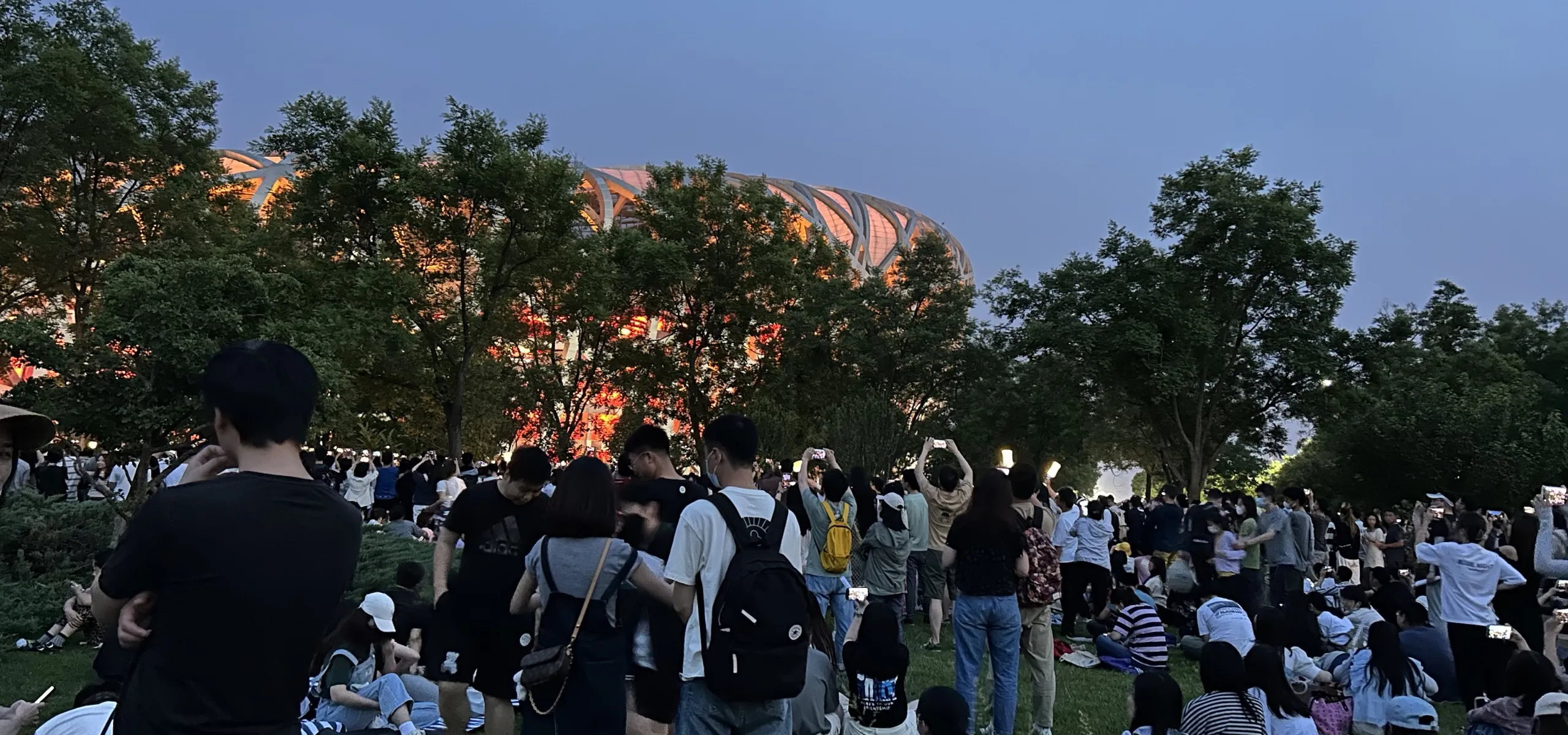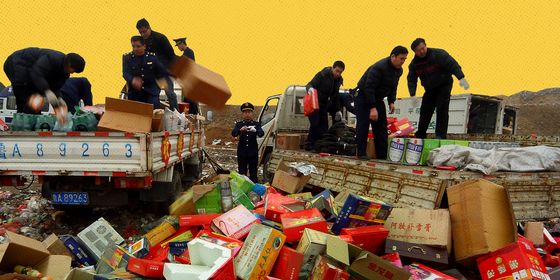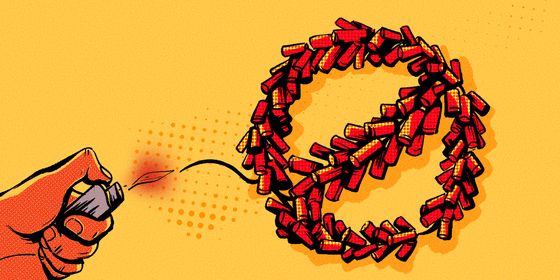Despite fan boycotts and government crackdowns, China’s ticket scalpers continue to turn profits with high prices
At 6:30 p.m. on May 26, as Taiwan rock band Mayday tuned up to play a sold-out concert, there seemed to be a bigger crowd outside Beijing’s National (“Bird’s Nest”) Stadium than on the inside. But among the disappointed fans who weren’t able to get tickets, there were others congregating there for a different purpose—to protest the practice of buying and reselling tickets at high prices, or scalping.
In fact, unlike the usual case with major ticketed events in China, scalpers, or huangniu (黄牛, literally “yellow oxen”), were conspicuously missing outside the stadium that day. Under the slogan “We’d rather stand outside Bird’s Nest than let the huangniu profit,” which trended on Weibo in the month since Mayday’s concert tickets went on sale in early May, fans agreed to show up with their own camping chairs, posters, and glowsticks, and sing along to the band on the lawns and squares outside the stadium, instead of buying expensive scalped tickets.
Xiao Ru, a decade-long fan of Mayday and one of the protestors outside the stadium, was pleased to see the size of the crowd. “It worked!” she tells TWOC as she surveys the people gathered. Still, Xiao, who asked to be identified by a pseudonym, admits the goal of ending the illegal practice of ticket scalping—or “wait until huangniu have a breakdown and return tickets to normal price,” as she puts it to TWOC—may not be achievable in the near future, as ID-based ticketing rules are loosely implemented and still leave many loopholes like “complimentary tickets” that end up on the black market.













